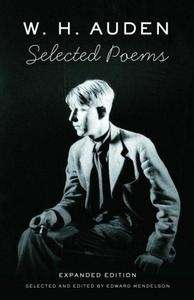Selected Poems (Auden)

Editorial Random House USA
Fecha de edición febrero 2007
Idioma inglés
EAN 9780307278081
384 páginas
Libro
encuadernado en tapa blanda
Dimensiones 204 mm x 132 mm
Resumen del libro
This significantly expanded edition of W. H. Auden's Selected Poems adds twenty poems to the hundred in the original edition, broadening its focus to better reflect the enormous wealth of form, rhetoric, tone, and content in Auden's work. Newly included are such favorites as Funeral Blues and other works that represent Auden's lighter, comic side, giving a fuller picture of the range of his genius. Also new are brief notes explaining references that may have become obscure to younger generations of readers and a revised introduction that draws on recent additions to knowledge about Auden.
As in the original edition, the new Selected Poems makes available the preferred original versions of some thirty poems that Auden revised later in life, making it the best source for enjoying the many facets of Auden's art in one volume.
Biografía del autor
x{0026}lt;P x{0026}lt;B W. H. Audenx{0026}lt;/B nació en la ciudad inglesa de York en 1907. Estudió en el Christ Church de Oxford, donde coincidió con otros escritores como Stephen Spender, Louis MacNeice o Christopher Isherwood. En 1930, su libro x{0026}lt;I Poems x{0026}lt;/I sentó las bases de su prestigio como una de las voces más originales y contundentes de su generación. Durante la década de los años treinta del siglo XX, viajó por Alemania, Islandia, China y España, donde fue testigo de la guerra civil española. En 1939 abandonó Europa y se trasladó a Estados Unidos, país del que adquirió la nacionalidad y en el que conoció a Chester Kallman, su compañero de toda la vida, y cambió de piel ideológica y estilística: del socialismo y el psicoanálisis regresó a las preocupaciones cristianas y teológicas. En 1948 recibió el Premio Pulitzer de poesía y, en 1956, ganó el National Book Award. Ese mismo año fue nombrado profesor de poesía en Oxford, ciudad a la que finalmente regresó en 1970. Murió en Viena en 1973.x{0026}lt;/P








